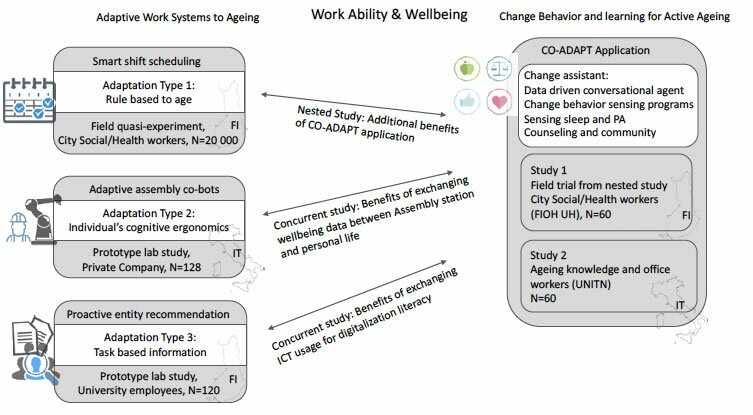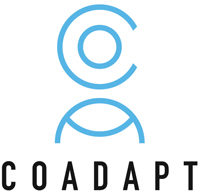The methodology of CO-ADAPT is to develop a framework as a change enabler detailing what should be adaptive, as well as how and why. The framework is supported by concrete implementations and evidence coming from trials and experiments.
An overview of trials and experiment is detailed below:

Adaptive Work System Study 1: Smart Shift Scheduling Study
The main aim is to study whether changes in working hours that increase better recovery at work would benefit more employees with higher age and lower work ability. We will study age and work ability related interactions in the long-term effects of a digital worktime planning tools (Titania®) supporting good shift ergonomics and better worktime control.
Adaptive Work System Study 2: Adaptive Assembly Station with Collaborative Robotics
The main purposes of the study are: evaluating the performance of the user’s interaction with the adaptive assembly workstation (AAW), identifying the most suited and informative physiological and cognitive measures upon which the system will rely, and investigating the workers’ general experience.
Adaptive Work System Study 3: Proactive Digital Entity Recommendation (UH)
The main aim is to study whether smart adaptive systems that learn what users do and what tools and information they need, can support the work ability of ageing workers by investigating exchange of computer use such as applications and social mediated interaction between the CO-ADAPT application and the Proactive Recommender
CO-ADAPT Application Study
Supporting employees into the change adaptation pathways through conversations at scale
